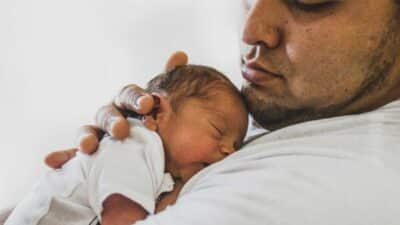Social freezing and Endometriosis
Lower abdominal pain as soon as menstruation starts, back pain, diarrhoea — Julia went through hell for a decade before she found out what she had been suffering from: endometriosis.
“What I thought for years was irritable bowel syndrome, bladder infections, a poor immune system and general hypersensitivity was finally going to make sense with the diagnosis. But until I was finally taken seriously, I had to continuously live in pain and ignorance for eleven years.” This is how the now 23-year-old describes it.
Depending on estimations, between eight and 15 percent of women with cysts and inflammation of the ovaries or intestines caused by endometriosis not only suffer for years. Their symptoms are often not taken seriously. After all, there are painkillers and “women have to go through it” — this is often the unanimous opinion of relatives, but also of doctors. But persevering and taking painkillers is not enough, because the foci spread with every cycle and can cause long-term damage. Scarring and adhesions are the result.
The problem is often a lack of knowledge, because the causes of endometriosis have not yet been fully researched. Nevertheless, endometriosis is now regarded as a systemic disease whose treatment is multi-pronged — for example, through surgery, hormonal therapy, changes in diet and relaxation techniques.
Especially for women who want to have children, the diagnosis of endometriosis is often catastrophic. This is because the recurrent inflammations and adhesions on the ovaries, as well as scarring caused by previous endometriosis operations, can severely affect female fertility in advanced stages. For every second woman suffering from endometriosis, the disease is the reason why pregnancy does not work out so easily.

So what can be done to preserve fertility in endometriosis?
One possibility is the so-called “social freezing”. This procedure, also known as cryopreservation, involves the harvesting of eggs and their subsequent preservation at very low temperatures. The actual freezing process includes a detailed gynaecological examination to examine the egg reserve, hormone stimulation to obtain as many (at least twenty) eggs as possible and a subsequent short operation in which the eggs are removed via puncture. These are stored at minus 196 degrees in liquid nitrogen and can be kept safe indefinitely.
In the case of endometriosis, the desire to have a child can be postponed until a later date. The eggs are then thawed and fertilised with sperm via IVF or ICSI and then implanted in the uterus. Like the freezing method, thawing is also considered a safe standard procedure.
To be dsitinguish, in the case of endometriosis it is more of a medical freezing, because the reasons for cryopreservation are not of a social nature (for example, because there is not yet a stable partnership or you are still studying), but of a medical nature.
The chances of success with social freezing
In the course of time, not only the vitality of the eggs decreases, but also their quantity. It is therefore advisable to carry out a possible cryopreservation as early as possible. The probability of a healthy child from an egg of a woman in her mid-twenties is about three times higher than that of a woman in her forties
The chances of success therefore increase the less the endometriosis has spread in the abdomen and the younger the woman is. If a patient is under 35 when she freezes her eggs, the rate of pregnancy is estimated to be 40 per cent per cycle. Two in three women under 35 years of age at the time of their first IVF treatment, the desired baby is conceived after three treatment cycles.
The costs of social freezing
There is no question that the costs of social egg freezing are high. Several thousand euros come together for the treatment. This is due to drugs for the hormonal stimulation, but also to the complex method of obtaining the eggs. In comparison, sperm freezing is cheaper, because sperm extraction is so much simpler. The costs of storage must also be considered.
After a long tug-of-war, statutory health insurances will now pay for fertility preservation measures for cancer patients on a pro-rata basis from 1 July 2021. This also includes social freezing. The costs for the later, necessary artificial insemination will also be covered on a pro-rata basis.
It is to be hoped that in the near future endometriosis patients will also be financially supported in their desire to have children. Julia, an endometriosis patient since the fourth grade, was lucky: after her diagnosis and an operation, she and her partner decided to have a child earlier than planned because of the disease. And it worked out without artificial insemination! Now Julia is in the last trimester of pregnancy and is looking forward to being a little family.
About Fertilly
At Fertilly, we have made it our mission to accompany couples (homosexual and heterosexual) and singles on the way to fulfilling their child wish. In doing so, it is important to us to create transparency in the area of fertility services, to provide information and knowledge on the topics of pregnancy and fertility and to help you to find the most suitable Fertility Center. Through cooperation with first-class Fertility Centres and clinics in Europe, enquiries about Fertilly are given preferential treatment. This means that our patients avoid the usually long waiting times and get appointments more quickly.
If you would like more information about Fertility Centers, success rates and prices, please contact us using this questionnaire. We will advise you free of charge and without any obligation.
-
Answer the first questions in the online form in order to book an appointment. This way we can better address your needs during the conversation.
-
We will find the best contact person for your individual needs. Schedule 20 minutes for the consultation.
-
We will introduce you to the right fertility clinic from our network, make an appointment and accompany you until your wish for a child is fulfilled.










